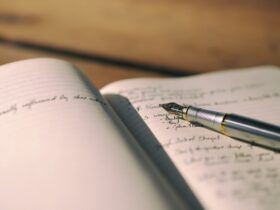In the journey towards self enhancing growth, books have always assumed a significant role. Not only are they vessels of knowledge, imparting wisdom from various eras and cultures, but they are also powerhouses for inspiration, enabling personal growth. We will help you to choose books to read if you want to become a better person.
Importance of Reading
“I have always imagined paradise will be a kind of library,” mused Jorge Luis Borges, and rightly so. Books are gateways to empathy, understanding and knowledge, nurturing personal growth. The importance of reading cannot be overstated. Reading takes you places, broadens your horizons, and lets you venture into the deepest corners of human knowledge and experience. Reading, in essence, is an enriching exercise for the mind.
How Books Inspire Personal Growth
Embarking on a journey through the pages of a captivating book can be the spark that leads to profound personal transformation. Literature has the power to stir changes in your perspectives, influence your actions, and alter the way you see yourself. Through the act of reading, one is compelled to look within and engage in deep self-reflection, which can be both challenging and enlightening. Books serve as mirrors reflecting the complexity of the world and our place within it, often encouraging us to think critically about our own beliefs and values.
As you turn each page, books have the potential to unlock new realms of thought, invigorate your innate creativity, and motivate you toward greater aspirations. They act as catalysts for self-improvement and personal growth, nudging you to expand beyond your current state. The experience of connecting with a book is unique and personal, with the power to affect lasting changes in one’s life.

Benefits of Reading for Personal Development
The act of reading transcends mere entertainment; it wields a significant impact on an individual’s journey of personal development. It serves as a vehicle for gaining valuable knowledge about oneself and the intricate world we live in. Books can be powerful tools that equip us with the understanding necessary to navigate life’s complexities.
Through the discipline of regular reading, one can cultivate a better understanding of diverse human experiences and emotions. This intellectual habit is not only fulfilling but also instrumental in fostering personal growth and self-awareness.
Learning from Other’s Experiences
Immersing oneself in the world of books is akin to living a multitude of lives, each offering a treasure trove of experiences to draw from. The struggles and triumphs of characters become lessons for the reader. You absorb wisdom from the narratives, learning vicariously through the decisions and consequences faced by others within the pages. It’s a process that allows you to comprehend the intricate web of motivations that drive human actions and see how the choices characters make shape their destinies.
Such literary experiences enrich your understanding and can guide you in making more informed choices in your own life. They provide a safe space to explore hypothetical situations and their outcomes, contributing to personal wisdom without the necessity of direct experience.
Gaining New Ideas and Perspectives
The act of reading is a gateway to the world. It allows you to traverse across continents and epochs, delve into varied cultures, philosophies, and ideologies, all from the comfort of your own home. Books expose you to a diversity of thoughts and viewpoints, often vastly different from your own, broadening your mental horizons. This exposure can ignite the flame of innovation within your mind, inspiring you to think in novel ways and adopt new perspectives that can greatly enrich your personal and professional life.
By introducing you to ideas and worldviews you might not have otherwise encountered, books serve as the bridge to a more comprehensive understanding of the human experience, fostering a global consciousness and appreciation for diversity.
Emotional Intelligence and Empathy
Narratives have a unique way of evoking emotions, drawing readers into the lives of their characters. A book can make you experience joy, sorrow, excitement, or indignation through its words. As you empathize with a character’s plight, rejoice in their triumphs, or feel the anguish of their defeats, you develop a deeper emotional connection with the human experience.
This journey through a spectrum of emotions is not merely a testament to a writer’s skill but also a valuable exercise in enhancing your emotional intelligence. By understanding and sharing the feelings of fictional beings, you refine your ability to empathize with real people. This heightened emotional intelligence is a cornerstone of personal growth, improving interpersonal relationships and nurturing a compassionate worldview.
Cognitive Abilities and Knowledge
Engaging with a book is akin to fueling your mind with premium nourishment. The cognitive advantages of reading are extensive and well-documented. It sharpens the mind, fostering critical thinking and analytical abilities that are indispensable in daily decision-making. Moreover, a routine of reading steadily builds your vocabulary and general knowledge, laying a foundation for intellectual growth and conversation.
This cognitive exercise not only enhances your mental faculties but also contributes to a more informed and well-rounded character. By continuously challenging your understanding and preconceptions, reading propels you toward a more enlightened and educated self.
Books to Read if You Want to Become a Better Person:
Throughout the diverse realms of literature, certain books have established themselves as pivotal tools for personal growth. These books span across various genres, offering insights, reflections, and wisdom that can profoundly impact one’s personal development journey.
Self-Help Books
- “Thinking, Fast and Slow” by Daniel Kahneman: This book delves into the two systems that drive the way we think – the fast, intuitive, and emotional system, and the slower, more deliberative, and logical system. Kahneman’s work offers profound insights into how these systems shape our decisions and judgments.
- “The Alchemist” by Paulo Coelho: A modern classic, this novel is a metaphorical tale about following one’s dreams and listening to one’s heart. It’s a story of adventure, self-discovery, and the pursuit of one’s destiny.
- “The Power of Now” by Eckhart Tolle: Tolle’s book emphasizes the importance of living in the present moment and disengaging from the constant chatter of the mind. It’s a guide to spiritual enlightenment and freeing oneself from the burdens of the past and anxieties about the future.
- “Atomic Habits” by James Clear: This book offers a comprehensive guide to building good habits and breaking bad ones. It illustrates how small changes can lead to remarkable results over time.
- “Daring Greatly” by Brené Brown: Brown discusses the power of vulnerability in transforming our lives. She challenges the perception of vulnerability as weakness, showing how it can be a source of strength and connection.
Novels
- “To Kill a Mockingbird” by Harper Lee: A classic novel that explores themes of racial injustice, moral growth, and compassion through the eyes of a young girl in the American South.
- “1984” by George Orwell: A dystopian novel that delves into the dangers of totalitarianism, censorship, and oppressive control, urging readers to value truth and freedom.
- “Pride and Prejudice” by Jane Austen: This enduring classic offers insights into themes of love, class, and reputation, showcasing the journey of self-awareness and personal growth in its characters.
- “The Kite Runner” by Khaled Hosseini: A compelling story of friendship, betrayal, and redemption set against the backdrop of Afghanistan’s tumultuous history.
- “The Great Gatsby” by F. Scott Fitzgerald: An exploration of the American Dream and the pursuit of happiness and success, showcasing the illusion and disillusionment that often accompany such pursuits.
Non-Fiction Books
- “Man’s Search for Meaning” by Viktor E. Frankl: A moving account of Frankl’s survival in Nazi concentration camps and his psychological theory of logotherapy, which posits that the primary human drive is not pleasure but the pursuit of what we find meaningful.
- “Quiet: The Power of Introverts in a World That Can’t Stop Talking” by Susan Cain: This book sheds light on the strengths and contributions of introverted individuals, challenging the societal bias towards extroversion.
- “Becoming” by Michelle Obama: A memoir by the former First Lady, chronicling her journey from her childhood in Chicago to her experiences in the White House, exploring themes of identity, race, and womanhood.
- “Educated” by Tara Westover: An inspiring memoir of a young woman who, kept out of school, educates herself, earning a PhD from Cambridge University. It’s a story of struggle, perseverance, and the transformative power of education.
- “Sapiens: A Brief History of Humankind” by Yuval Noah Harari: This book offers a sweeping overview of the history of humankind, exploring how Homo sapiens came to dominate the Earth and the impact of our species on the planet and on ourselves.

Choosing the Right Books for Personal Growth
Choosing books that cater to interests and specifically target areas of personal growth is key to an effective and fruitful reading experience.
Challenge your perspectives, intellect, and understandings by selecting a diversity of genres, authors, and subjects. A good balance can result in all-rounded growth.
Reading about personal development is only the beginning; implementing the learned lessons and ideas into real life is as important.
Reflecting on the themes, challenges, and resolutions in a book and correlating them with one’s experiences can be a powerful learning tool.
Closing Thoughts
Reading, an enriching experience in itself, can be transformative if directed towards personal development.
The pursuit of reading for self-growth often leads to positive long-term benefits, including enhanced empathy, diverse knowledge, improved cognitive abilities, and a broadened perspective on life.


















